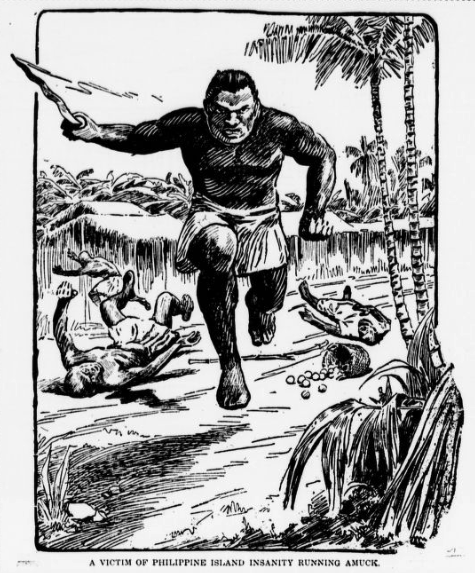
The word “amuck” has its roots in Southeast Asian cultures, specifically in the Malay language. In Malay, “amok” was a term used to describe a state of wild or frenzied rage or violence, often accompanied by a desire for revenge.

William S. Walsh (Curiosities of Popular Customs and of Rites, Ceremonies, Observances, and Miscellaneous Antiquities, 1925) writes:
“The circumstance may be any accident or sorrow which overwhelms a man with uncontrollable emotion. His grief then takes the form of violent and indiscriminate anger against the whole human race. With drawn kris he rushes out to slay or be slain. His frenzied appearance proclaims his condition. ‘Amok! Amok!’ shriek the people, as they trample over each other in their hurry to save their lives. The alarm spreads far and wide. The hand of every Malay springs to the twisted band of his sheath, to draw forth the dagger that hangs by his side; the police clutch their weapons; the Europeans seize their guns; every eye, every nerve, is strained for the coming peril.” (p. 39-40)

This word eventually made its way into European languages, where it was often misspelled or misinterpreted as “amuck”.

The concept of “running amok” was not limited to Southeast Asia and was known in other cultures throughout the world, including Europe. It was often used to describe a person who had become unhinged and was engaging in destructive or violent behavior.

In modern usage, the word “amuck” is often used to describe a situation that has become chaotic or out of control, or to describe someone who is acting in a wild or uncontrolled manner. However, the word has largely lost its cultural roots and is now primarily used as a figure of speech.

